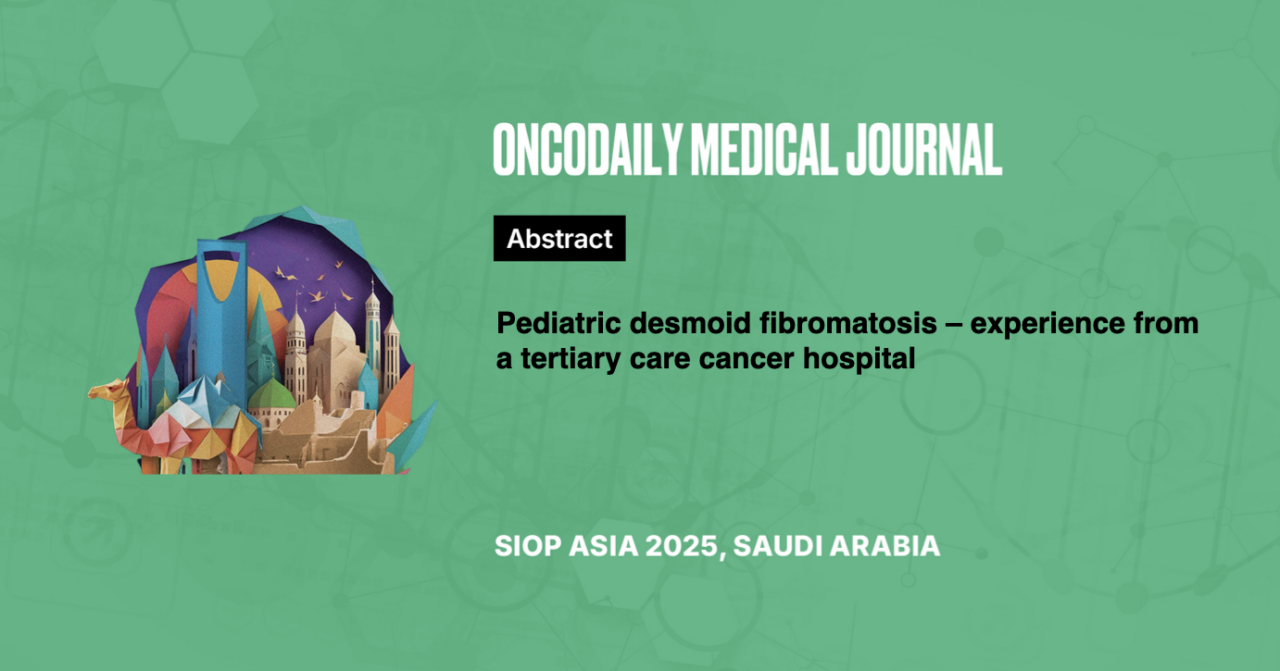Abstract
Introduction: Desmoid Fibromatosis is a rare locally aggressive soft tissue tumor with a high relapse rate and episodes of progression. It accounts for 0.03% of all neoplasms. There is limited data of children and adolescents with desmoid fibromatosis from the low-middle income country setting in the tyrosine kinase inhibitors era.
Methodology: This retrospective analysis was done for children and adolescents ≤18 years of age pathologically diagnosed to have desmoid fibromatosis from January 2013 to December 2023 at a tertiary cancer centre of western India. Demographic details, clinical information, treatment details and outcomes were collected from medical records. Response Evaluation Criteria in Solid Tumors (RECIST) was used to assess the tumor response.
Results: Eighteen patients were registered with male:female ratio of 1:1. Median age of presentation was 11.5 years. Commonest site of tumor was lower extremity in eight (44.44%) followed by pelvis in four (22.22%), head & neck in three (16.66%) and gluteal region in three (16.66%) patients. Five(27.77%) patients were treated with surgery alone, thirteen(72.22%) with chemotherapy/targeted therapy, four(22.22%) received surgery + medical treatment and one(5.55%) radiotherapy + medical treatment. Median duration of follow-up was 48 months.
Overall response rate was 50%. Seven(38.88%), two(11.11%), six(33.33%) and three (16.66%) patients had complete response (CR), partial response (PR), stable disease (SD) and progressive disease (PD), respectively. All patients treated with surgery +/- tyrosine kinase inhibitor achieved CR. Among the patients treated with TKI only, two achieved PR and five had SD. One child with SD was treated with TKI + radiotherapy. Amongst 3 patients with PD, two were lost to follow up and one expired due to surgical complication.
Conclusion: Surgical excision whenever possible provided the best modality of treatment for our patients with desmoid fibromatosis. Progression was halted in majority of cases with tyrosine kinase inhibitors when surgery was not feasible.





